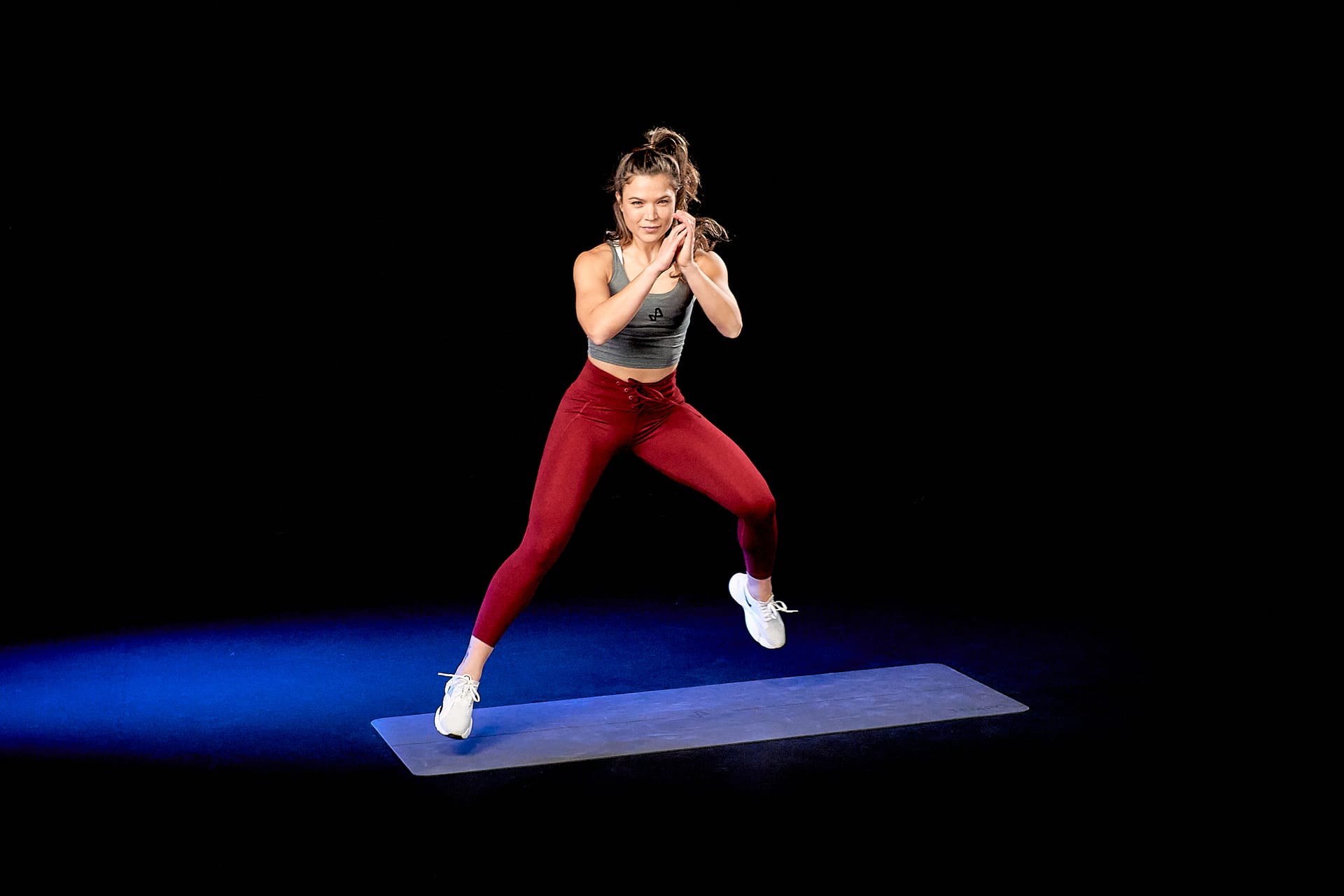Are the workouts I'm currently doing safe to keep doing through my pregnancy?
What if I didn’t work out before? Can I start now?
Is core work off limits?
Is it ok to jump, twist, deadlift, and squat?
Is it OK to let my heart rate go above 140bpm?
Is it safe to lie on my back after the first trimester?
I’ve addressed these common questions below, to empower you with the best information to shape your fitness journey the way that works for you and your baby.

Your questions, answered.
1. Will exercise during pregnancy harm my baby?
NO, no, nope! Your body was designed to be the safest place for your growing baby as you move through life. In fact, The American College of Obstetrics and Gynecology (ACOG) recommends 30 minutes or more of moderate exercise per day as often as every day of the week, unless you have a medical condition or pregnancy complication.
Research shows that maintaining a regular exercise routine throughout your pregnancy can help you stay healthy and feeling good. Exercise can improve your posture, core strength, and lessen some common discomforts like backaches and fatigue. If you need more reasons, there is also strong evidence that physical activity may prevent gestational diabetes (diabetes that develops during pregnancy), relieve stress, and build the stamina to make labor and delivery easier.
You absolutely should – at the level you can. This is not the time to push the intensity of your workouts or take up a new physical challenge (you actually are doing that regardless!). A good rule is, if you have been doing it and you can still do it comfortably, keep it up. If you are starting from scratch, this is a great time to start building an exercise habit for you and for the baby.
Start small and consistently check in with yourself. If you’re new to exercise, try adding a 15-30 min walk to your day or take a gentle prenatal yoga class to get moving and feel centered.
Nope! Some exercises, like sit ups, crunches and twists, lose their efficacy and should be avoided while your belly grows. However, regular core work will keep you connected to your body, breath, and pelvic floor. Keeping a strong and supported core can help decrease lower back discomfort, support you during exercise, and make your labor, delivery and postpartum recovery easier and potentially faster. This is the time to dig deeper in your core work, not leave it in the rear view mirror!

Jumping: As your body grows, your balance, coordination, and pelvic floor control can change. This wouldn’t be the time to pick up your first jump rope, but for those who feel comfortable and confident – you got this! But if you aren’t steady or comfortable, find modifications for jumping. Low impact doesn’t have to mean low intensity!
Twisting: Definitely safe and should be incorporated through your pregnancy, but avoid quick, jerking movements through the midsection that can sometimes cause lower belly pain. Twist with intention, incorporating slow, intentional movement while controlling your breath to keep you safe and prevent injury.

5. Is it OK to let my heart rate go above 140bpm?
This is old science that has been fully debunked but seems to stick around. The ACOG’s position on exercise during pregnancy was significantly more restrictive prior to 1964* and has since evolved. The most recent guidelines from ACOG encourage you to test your exertion with the “talk test”. As long as you can carry on a conversation while you are exercising, you are probably not overexerting yourself. If you’re not able to chat, back off a little.
Yes, but with care. The key here is you should always be in control, breathing and listening to your body. There are small risks, but they are rare and can be remedied by simply changing position.
What to know: After about week 20, the weight of your belly and body could potentially put pressure on the vena cava, the main vein that carries blood back to the heart and your growing baby. If this does happen, you will start to feel dizzy and lightheaded and would need to roll to your side to relieve the pressure, and your symptoms will subside.

Pregnancy is an exciting time, and your connection with your body will change and evolve, as will your training! Exercise can be an empowering way to keep up your energy, build strength and stamina, and continually check in with your changing body. Look for prenatal classes taught by yours truly on your Tempo!








